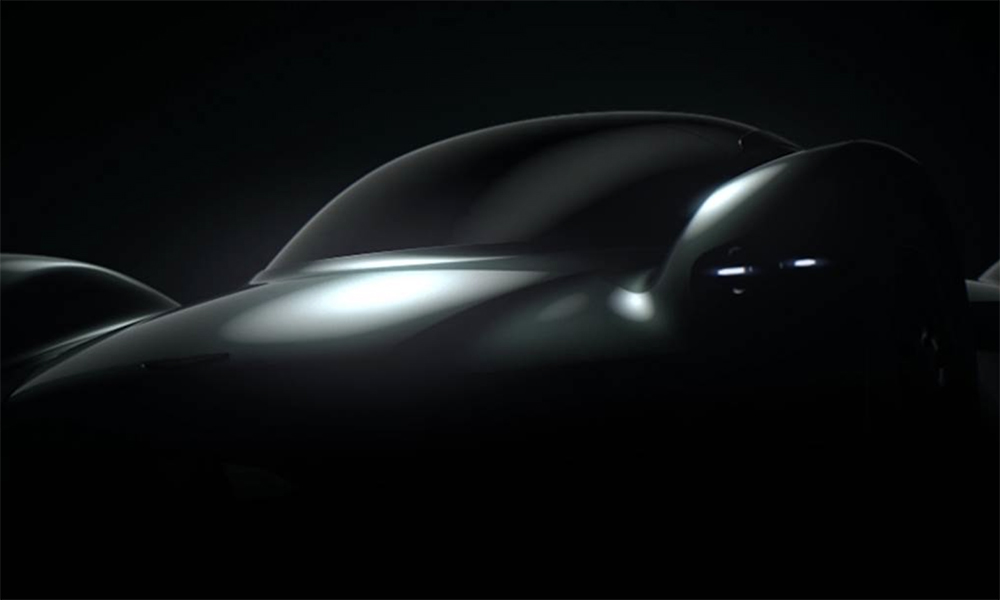
Photo: Aston Martin
Aston Martin’s “postponement” of its Valkyrie Le Mans Hypercar program, confirmed on Wednesday morning, has become the latest development in the ongoing saga that has seen more announcements and changes to sets of technical regulations than ever before in a 30-month span of top-level sports car racing.
And if for not one failed promise made eight months ago by a manufacturer, global prototype convergence could have already become a reality.
Turn the clocks back to May 2019, a time when the FIA and ACO had not yet received formal commitments from any manufacturer to its ever-evolving Le Mans Hypercar platform.
Initially announced at Le Mans in 2018, the formula had gone through several overhauls in the months that followed, including the allowance of production-based hypercars, per the specific request of Aston Martin, which had been eyeing up an entry with its Valkyrie.
While Toyota had remained firm on its commitment to LMH, a platform to showcase its hybrid technology, the FIA and ACO needed at least one other manufacturer in order to officially green-light the platform for the 2020-21 FIA World Endurance Championship season.
That manufacturer was Aston Martin, which at Le Mans, had finally committed to its road-based Valkyrie concept, although offered few details on the program, despite backhand knowledge that a deal had just been struck with the production car’s chassis builder, Multimatic, to spearhead the race project.
The last-minute commitment for a second major OEM to LMH resulted in the FIA and ACO not resorting to ‘Plan B’ which WEC CEO Gerard Neveu nondescriptly mentioned during a media roundtable at Sebring three months earlier.
That ‘Plan B’, Sportscar365 understands, would have been the full integration of DPi machinery and doing away with Hypercar altogether.
At least one major manufacturer representative walking away from the ACO’s press conference that Friday was left shocked at the news that a global DPi platform would not be adopted.
The news ultimately led to that manufacturer pulling the plug on a planned DPi 1.0 program that was set to debut in the 2020 IMSA WeatherTech SportsCar Championship season as a precursor for a commitment to the next-gen global regulations.
In the months after Toyota and Aston’s announcement there was little to no news of any additional LMH entrants, besides planned privateer efforts from Glickenhaus and ByKolles, prior to Peugeot announcing in November plans to enter the WEC’s top class, but only in 2022.
The lack of interest in LMH and continued desire for a common platform with IMSA led to reignited talks between the two sports car racing super powers through the summer, which ultimately culminated with last month’s historic ACO-IMSA joint LMDh platform announcement.
LMDh now joins LMH in what’s set to be a complicated road ahead for the FIA, ACO and IMSA technical departments to balance the three distinctly different platforms (LMH prototype, LMH road car and LMDh) together.
Toyota has since spent tens of millions of Euros developing an LMH on the basis of having factory competition, which it has lacked in the last two WEC seasons, while niche automaker Glickenhaus and LMP1 constructor ByKolles have moved ahead with plans to create their own LMH cars for the top class.
Peugeot, which had initially announced an LMH, is now re-evaluating whether it will go to the more cost-effective LMDh route instead.
Despite an encouraging level of early interest from manufacturers in LMDh, it’s left the state of top-level sports car racing in uncertainty yet again, which could have been completely averted had Aston not committed to Hypercar in June, which it has since backtracked on.
While the official reason for Aston’s “postponement” is due to the uncertainties of the regulations around the formation of LMDh, the real story lies behind the British manufacturer’s financial rescue deal orchestrated by Lawrence Stroll, who will be taking the brand back to Formula 1 as a full factory team in 2021.
The move, which sees Stroll become the company’s executive chairman, has reportedly caused friction within Red Bull Racing, which currently carries Aston Martin sponsorship on its F1 cars, and with sister company Red Bull Advanced Technologies, which spearheads the Valkyrie road car program.
It has all led to an unfortunate scenario for sports car racing fans that will likely now see another season of Toyota running unopposed, at least with no factory competition, in the WEC and with a brand-new car that as of just one month ago, was the only platform to race in the top class at Le Mans.
While the ACO has reaffirmed its commitment to LMH, what will happen if Peugeot ends up going to LMDh, as expected, leaving Toyota as the sole factory entrant yet again?
In a perfect world, every manufacturer would be under a single platform.
The shocking revelation is that we nearly had this eight months ago and, arguably, the sports car racing world would have been in a much more stable state than the fragmentation we face right now.
The views and opinions expressed on this web site are solely those of the original authors and other contributors. These views and opinions do not represent those of Sportscar365.com, John Dagys Media, LLC and/or any/all contributors to this site.
























